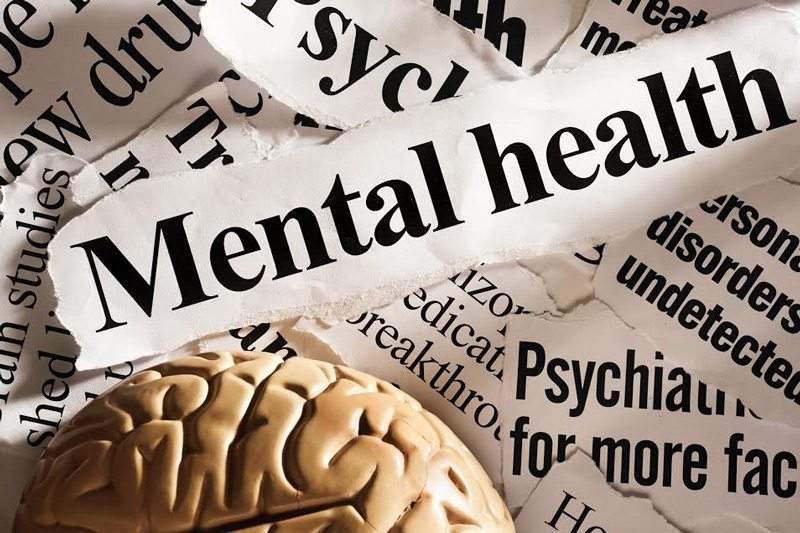Nearly 60 million people in India suffer from mental illness. It’s time we do something about raising awareness on mental health issues in our country. As a growing city, Vizag is unfortunately not immune to the growing global and national mental health issues. Whilst we know that people with mental disorders experience disproportionately higher rates of disability and mortality, help seeking behaviors are still vastly stigmatized in our society. There is a significant disparity in the economic burden mental health disorders pose on our country to the actual health expenditure in this field. Sadly, this is not unique to our country.
As a mental health professional, I would like to take opportunity of the day and discuss some pertinent mental health issues local to us. Illustrated below are a few cases that routinely come across to Psychiatrists.
Case 1: 18 year old Mr AB recently completed his inter 2nd year. AB hails from a reasonably well off and educated family with no other health problems except for some anxiety when dealing with stress. 2yrs ago, AB attended a friend’s 16th birthday party where he was introduced to “weed” (cannabis or marijuana) by other peers to “chill out” before exams. Unsurprisingly it worked and was a great hit with AB and his friends who were now into smoking weed regularly over the past year.
Then problems began emerging in AB’s life- grades fell and he barely made it through inter finals. Arguments at home were on the up rise. AB’s mother noticed he hadn’t been sleeping very well and was often observed to be swearing when alone as if talking to someone. He would be very suspicious about the radio and insist all radios were turned off. At this point, he didn’t like the idea of seeing a psychiatrist as did his dad, who believed this was all ‘normal teenage phase’ that he would eventually grow out of. One day, during an argument with his dad over something trivial AB punched his dad on the face and demanded his share of the family assets before leaving the house. Finally, when he agreed to see a psychiatrist, his underlying psychotic illness (a condition where one loses touch with reality) became apparent, albeit in his case it was felt to be cannabis related. “But I thought it was harmless” said AB still struggling to accept the culprit cannabis, like many young people his age.
Drug induced psychoses are a raising concern, especially amongst youth today. The popular belief of cannabis being ‘safe’ is untrue and hence misleading. Research in the area is vast, contradictory and if taken from inappropriate sources, is especially deceptive. Reality is that genetically prone youngsters are at risk of developing psychosis with consistent use of cannabis over months. However, it is not clinically possible to detect who are susceptible until it’s too late. A third of youngsters diagnosed with drug induced psychosis can go on to develop more severe and enduring mental illness such as schizophrenia. Treatment of all psychotic mental illness involves discontinuing any suspected illicit drugs and commencing appropriate medications by a qualified Psychiatrist.
Case 2: 9yr old XY doesn’t talk much. His parents didn’t think much of this delay as many friends and relatives who saw XY over the years said XY’s speech was slow because “he’s a boy” of course with the implication that boys do everything late. Change would be predicted for every following year but parents didn’t really see this. The need to seek specialist help stemmed from the class teacher in class 3 pointing out that XY couldn’t write at all; in fact, he was unable to spell his own name when asked. When they eventually saw a pediatrician, Autism was suspected although it was explained that a confirmative diagnosis could be given by a trained child psychiatrist. My detailed assessments of the child over a period of time revealed that he indeed had features of autism.
Autism is a childhood disorder of the mind that unpredictably affects the child’s ability to communicate in various social circumstances, in addition to other odd repetitive behaviors. It tends to affect boys more than girls and can run in families. Mental retardation may or may not be present. The diagnosis of autism is therefore very specialist (Psychiatrists trained in Child Mental Health) and time consuming. It entails the use many high quality tools by trained psychiatrists. Of note, behavioral disturbances (including aggression to self or others), school refusal and ADHD (attention deficit hyperactivity) are also common in these children. These conditions of course, may exist independently of autism in children who are otherwise normal. Specialist assessments by Psychiatrists trained in Child Psychiatry is recommended if you are concerned about a child with similar problems.
The above cases represent merely the tip of the proverbial iceberg in terms of the range of mental illnesses prevalent in our city today. Thus be it stress at work or home, relationship troubles, mood disorders, alcohol or substance misuse, childhood mental health issues or psychoses, seeking help shouldn’t be stigmatized. Whilst the good news is you don’t have to be mentally unwell to see a psychiatrist or psychologist, seeking help should be globally encouraged. After all, like they say, there is truly no health without mental health!

Dr Shvetha Chilukuri,
MBBS, MRCPSych (UK),
Consultant Psychiatrist with special interest in Adult and Child Psychiatry, Drug and alcohol rehabilitation, Eating disorders and Psychotherapy










Discussion about this post